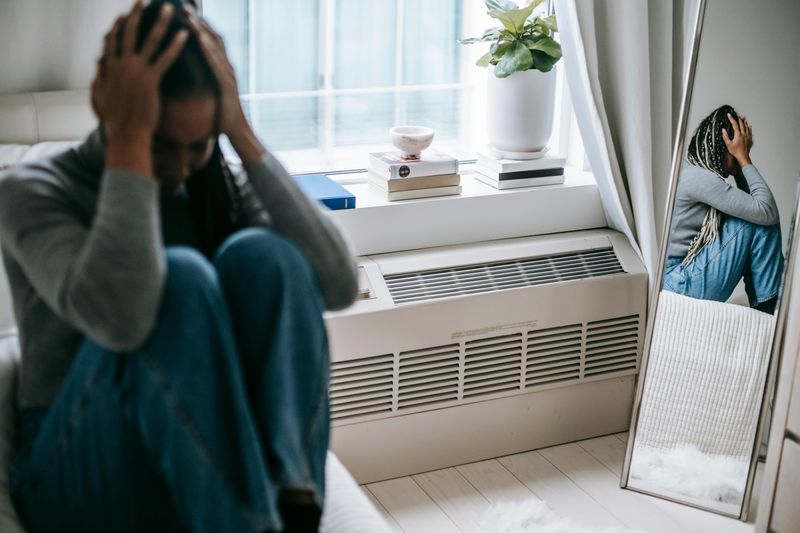10 Things You Should Stop Apologizing For

We all say sorry way too often, even when we haven’t done anything wrong. Constantly apologizing can make you seem less confident and can actually hurt your self-esteem over time. Learning when to stop saying sorry is an important step toward standing up for yourself and feeling more comfortable in your own skin. Here are ten things you really don’t need to apologize for anymore.
1. Your Feelings and Emotions

Emotions are a natural part of being human, and there’s absolutely nothing wrong with feeling them fully. Whether you’re sad, angry, excited, or anxious, these feelings deserve recognition and respect. Apologizing for how you feel sends the message that your emotions aren’t valid.
Everyone experiences ups and downs, and pretending everything is fine when it’s not only makes things worse. Your feelings give you important information about what matters to you. They help you understand yourself better and guide your decisions.
Instead of saying sorry for being emotional, try expressing what you need. Healthy relationships make space for all kinds of feelings, not just the happy ones.
2. Setting Boundaries

It’s okay to say no. Really. Boundaries aren’t about pushing people away—they’re about knowing what you need to stay sane. You’re not selfish for having limits—you’re human. Trying to please everyone will only drain you in the end.
When you set clear limits, you actually become more reliable because you’re not overcommitted and exhausted. People who respect you will understand when you need to decline an invitation or request. Those who get upset likely weren’t respecting your needs in the first place.
Practice saying no without adding a lengthy explanation or apology. A simple, polite decline is perfectly acceptable and shows self-respect.
3. Asking Questions

Curiosity drives learning, and asking questions is how we gain knowledge and understanding. There’s no such thing as a dumb question when you genuinely want to learn something new. Teachers, bosses, and colleagues actually appreciate when people ask for clarification instead of pretending to understand.
Making assumptions or guessing can lead to bigger mistakes down the road. Questions show that you’re engaged, paying attention, and care about getting things right. They demonstrate intelligence, not ignorance.
The only time you shouldn’t ask is when you haven’t tried to find the answer yourself first. Otherwise, speak up whenever something isn’t clear. Your question might help others who were too afraid to ask.
4. Taking Up Space

You have every right to exist fully in the world without making yourself smaller for others’ comfort. Many people, especially women, are taught to minimize their physical presence by crossing their legs tightly, keeping their arms close, or constantly moving out of the way. This habit reinforces the false idea that you’re somehow in the way.
Taking up reasonable space on public transportation, in meetings, or at social gatherings isn’t rude. Standing tall, sitting comfortably, and moving with confidence are all perfectly acceptable behaviors. Your body deserves to be comfortable, not constantly contracted.
Notice when you automatically apologize just for existing in a space. Challenge yourself to stop saying sorry when someone bumps into you or when you’re simply occupying your fair share of room.
5. Your Appearance

Your body, face, hair, and clothing choices are yours alone to decide. Apologizing for not wearing makeup, having a bad hair day, or not dressing up sends the message that you owe others a certain appearance. You don’t.
Beauty standards are constantly changing and impossible to meet for everyone. What matters most is that you feel comfortable and authentic in how you present yourself. Some days you might want to dress up, and other days you might prefer casual comfort—both are completely fine.
Self-deprecating comments about your appearance might seem like humility, but they actually reinforce negative self-talk. Instead of apologizing for how you look, try simply existing without commentary. Your worth isn’t determined by your appearance.
6. Other People’s Reactions

It’s not your job to manage how others feel. Their emotions belong to them, just as yours belong to you. When you constantly apologize for their reactions, you lose sight of your own boundaries and start living to keep others comfortable.
Of course, if you actually hurt someone through your actions, a genuine apology is appropriate. But if someone is upset simply because you made a choice they disagree with, that’s their issue to handle. Healthy adults can manage their own emotional responses.
Trying to keep everyone happy all the time is exhausting and impossible. Focus on being respectful and kind, then let others be responsible for their own feelings about your decisions.
7. Prioritizing Your Health

Your physical and mental health should always come first, even when it inconveniences others. Canceling plans because you’re sick, tired, or overwhelmed isn’t something to feel guilty about. Pushing through when your body and mind need rest only leads to burnout and worse problems later.
Many people feel pressure to show up no matter what, but this attitude is harmful and unsustainable. Taking a mental health day, going to medical appointments, or simply getting enough sleep are all legitimate priorities. Real friends and understanding employers will support your wellbeing.
Stop apologizing for putting on your own oxygen mask first. You can’t pour from an empty cup, and taking care of yourself actually makes you better able to help others when you’re ready.
8. Your Success and Achievements

Hard work deserves recognition, and downplaying your accomplishments doesn’t make you more likable. When someone compliments your success, saying sorry or deflecting with excuses diminishes your effort and talent. You earned whatever you achieved, and false modesty helps no one.
Some people worry that celebrating wins will make others feel bad, but that’s not your responsibility. Your success doesn’t take anything away from anyone else. Confident people can be happy for others while working toward their own goals.
Practice accepting compliments with a simple thank you instead of immediately apologizing or explaining it away. Owning your achievements inspires others and gives you the confidence to keep growing and reaching for bigger goals.
9. Changing Your Mind

Evolving your opinions as you learn is a sign of wisdom, not flip-flopping. It takes courage to admit when your past beliefs no longer fit new information. Stubbornly refusing to change isn’t being true to yourself—it’s limiting your potential.
Whether you’re changing career paths, ending a relationship, or simply deciding you don’t like something you used to enjoy, evolution is normal. You’re allowed to try things and then choose differently. Life is about exploration and discovery, not rigid commitment to every early decision.
Explain your reasoning if you want to, but don’t apologize for growing and changing. The person you were a year ago had different knowledge and experiences than you do now.
10. Being Yourself

Authenticity beats fake perfection every single time. Your quirks, interests, sense of humor, and unique perspective make you who you are. Apologizing for your personality or trying to fit into someone else’s mold only leads to exhaustion and unhappiness.
Not everyone will like you, and that’s perfectly okay. The right people will appreciate your genuine self, while those who don’t simply aren’t your people. Pretending to be someone you’re not attracts the wrong relationships and leaves you feeling empty.
Stop saying sorry for laughing too loud, having unusual hobbies, or expressing unpopular opinions. Your authentic voice matters, and the world needs more people brave enough to be real. Embrace what makes you different instead of hiding it.

Comments
Loading…